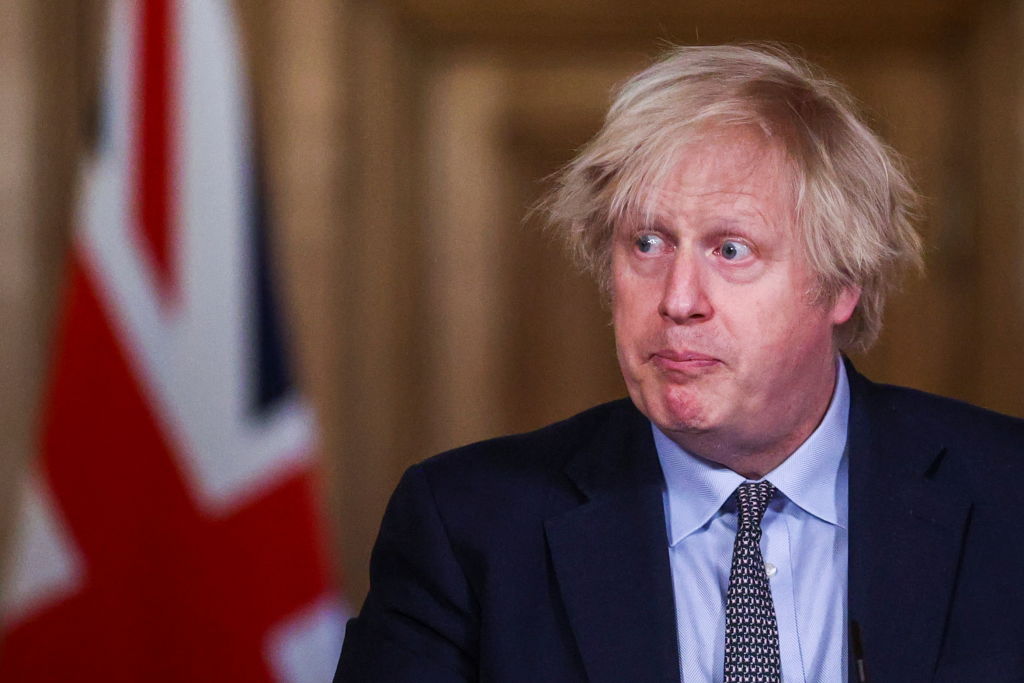Boris Johnson might have started back-pedalling furiously. He might have tried to dismiss it as an off-the-cuff comment. And the spin doctor might have preferred it to have remained private. Even so, the Prime Minister was surely right when he told MPs last night that ‘greed’ and ‘capitalism’ gave us the Covid-19 vaccine. And rather than backing away from the remarks, the PM should be doubling down on them. He was spot on. Free enterprise and the multinational corporation are getting us out of this mess, and we need to talk about that a lot more than we do.
The pioneering MRNA technology used by BioNTech and Moderna was funded by Wall Street through years of hopeless losses
It was typical Boris. At a meeting of Tory backbenchers he launched into a robust defence of the market. ‘The reason we have the vaccine success is because of capitalism, because of greed my friends,’ he said. It wasn’t quite Gordon Gekko, but the message was clear enough. The sanctimonious left immediately pounced. Labour MP Angela Eagle tweeted ‘Altruism not greed will get us through this’ while her colleague Barry Sheerman described it as an ‘obnoxious comment’. To the opposition, it may have seemed like a gaffe they could attack.
But hold on. Johnson was onto something important. In truth, the roll-out of vaccines has been a triumph for free enterprise and the multinational corporation. True, there has been some help from the state. But three of the four vaccines licensed in the developed world have been created by private enterprise – BioNTech/Pfizer, Moderna and the Johnson & Johnson jabs – while the fourth, our own Oxford jab, came out of a university and was commercialised by one of the biggest pharmaceutical companies in the world.
The pioneering MRNA technology used by BioNTech and Moderna was funded by Wall Street through years of hopeless losses, yet it has finally come good. And, at the same time, the global resources that have been mobilised in record time, not just to create the vaccines but to test, make, and distribute them could only have been accomplished by private multinationals. No other organisation combines the technical expertise, logistical capacity, and financial resources to make that happen. It was a triumphant vindication of a certain type of economic model. Indeed, the problems that we have been experiencing with ramping up production quickly enough to meet demand are the result of too little capitalism, not too much. If we had thrown more resources at vaccines, we would – who could have guessed? – have more of them, and a lot faster as well.
Instead of apologising, or conceding it was a gaffe, the PM should be making his argument more forcefully. The Covid-19 crisis has led to an unhealthy increase in the size and power of the state. We have extended government control over everyday aspects of our lives on an unprecedented scale. We have ramped up spending to more than half of GDP. We have massively increased the powers of the police, and interfered with just about every business. It is going to be very hard to roll that back: the state is usually a lot keener to expand its power than to reduce it. As we recover from the crisis we will need the energy and restless innovation of capitalism and the problem-solving ingenuity of the free market more than ever. And the sooner we start shouting about that the better.






Comments